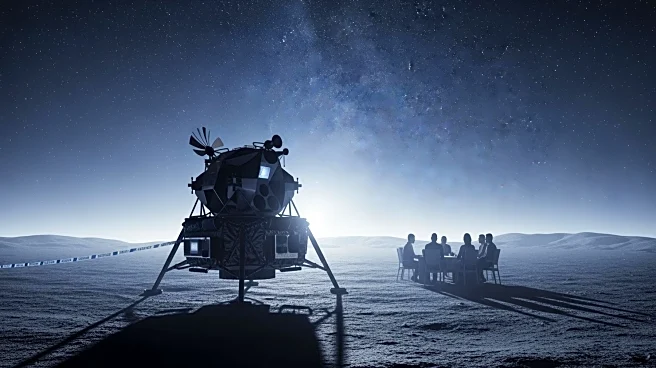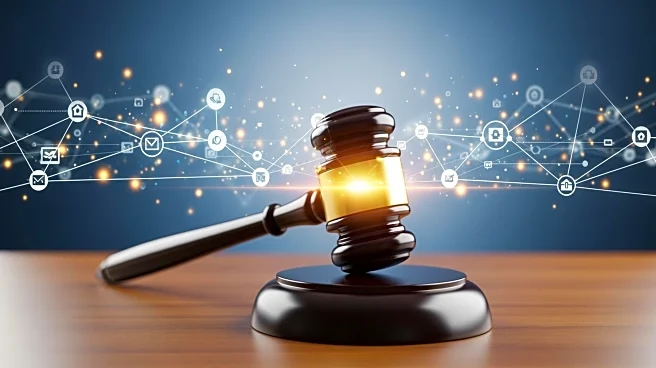What's Happening?
A significant number of public figures, including celebrities, former government officials, and scientists, have signed a statement calling for a prohibition on the development of artificial superintelligence.
The statement, organized by The Future of Life Institute, demands that development should not proceed until there is broad scientific consensus on its safety and strong public support. Notable signatories include Sir Stephen Fry, Steve Bannon, and Apple co-founder Steve Wozniak. The call for a pause reflects growing concerns about the potential risks associated with superintelligent AI, which could surpass human capabilities and impact society in unforeseen ways.
Why It's Important?
The development of artificial superintelligence poses significant ethical and safety challenges. If unchecked, it could lead to scenarios where AI systems operate beyond human control, potentially affecting national security, economic stability, and social structures. The call for a pause highlights the need for careful consideration and regulation in AI development, ensuring that advancements are made responsibly. This movement could influence public policy and encourage governments to implement stricter oversight on AI research and development, impacting tech companies and their innovation strategies.
What's Next?
The statement's signatories hope to spark a broader conversation about the responsible development of AI technologies. As public awareness grows, there may be increased pressure on governments and tech companies to establish regulatory frameworks that prioritize safety and ethical considerations. Future discussions could lead to international agreements on AI development standards, similar to those in place for nuclear technology. The tech industry may need to adapt to new regulations, potentially slowing down the pace of AI innovation but ensuring safer outcomes.
Beyond the Headlines
The ethical implications of artificial superintelligence extend beyond immediate safety concerns. Long-term effects could include shifts in employment, privacy issues, and changes in human interaction with technology. The debate also touches on philosophical questions about the role of AI in society and the potential for machines to surpass human intelligence. These discussions may influence cultural perceptions of technology and drive changes in educational priorities, preparing future generations for a world increasingly shaped by AI.








